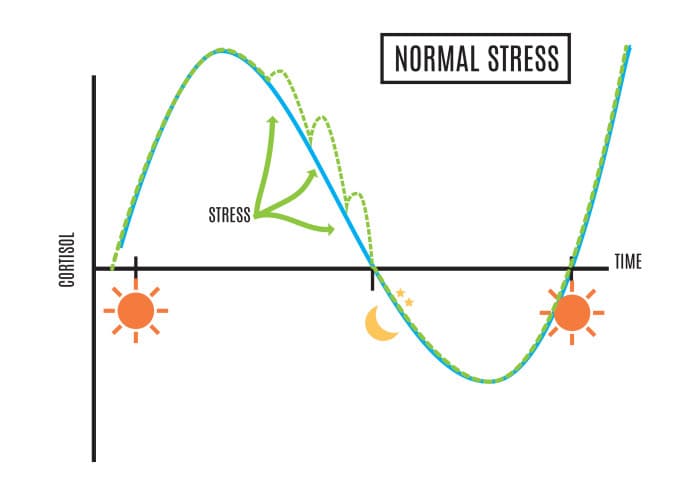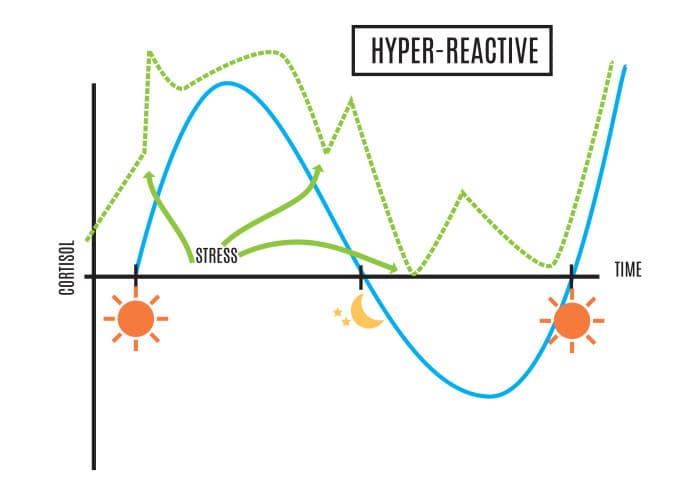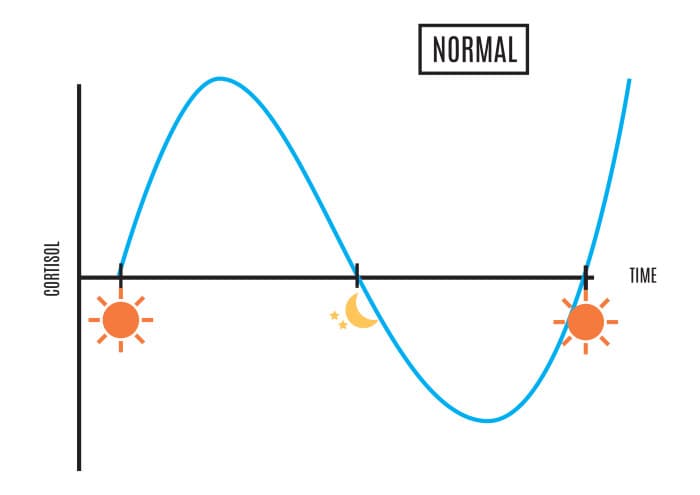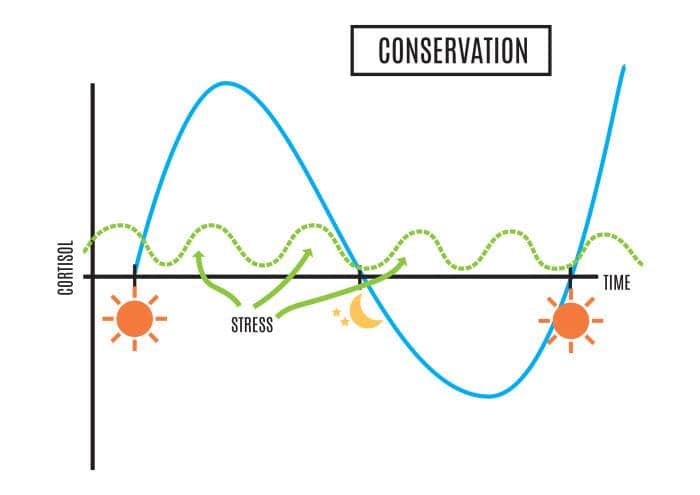Cort RX - ATP SCIENCE

Finding a control of your stress!
Do you suffer from stress? Yes! Whether male or female you will be prone to experience some form of stress at one point in time, if not daily! Unfortunately when it comes to losing weight, stress can be a massive road block in slowing down your weight loss success! Not to mention, the affects of stress can have a number of other negative impacts to your general health and well being, whether it be weight loss or not!
Being able to control or reduce stressful influences externally and internally is almost impossible until now!
ATP Science brings you Cort RX, an adrenal cortex support supplement to help you reduce the severity of your cortisol levels, spiked from stress factors. Cort RX has been designed to help you get your levels of cortisol back to a normal pattern throughout the day in order to help you get back on the right path to a healthier you. In the real world we all suffer through various versions and stages of adrenal maladaptation caused from stress, depending on our individual circumstances. Finding the balance of your cortisol levels is important for a healthier lifestyle and weight loss. However, in this day and age it is almost unavoidable to stop or handle stressful situation without it affecting our bodies negatively. Therefore with the new Cort RX from ATP science you will be able to benefit from the following which are affected by cortisol spikes.
Cort RX Benefits:
- Helps the body to adapt efficiently to external stress
- Reduces the severity of internal stress from toxic, immune and inflammatory triggers
- Takes the burden off the adrenal gland and has a sparing effect on cortisol
- Helps to restore healthy cortisol fluctuations
- Anti-catabolic by reducing the damaging effects of cortisol in response to stress, training and stimulants
- Improve resilience
- Supports healthy digestion, detoxification and antioxidant defence systems
- Supports healthy immune system function
- Potent anti-inflammatory
- Pain reliever
How Cortisol works:
HPA (Hypothalamic Pituitary Adrenal) Axis in our brains works to mediate our survival response by collecting data from our bodies to inform of potential stressors. Stressors can come from a number of factors, either internally or externally and can manipulate our bodies to trigger a stress response. Before our brains can respond, our bodies will react proactively by triggering a stress response, just in case, as our bodies can't afford to wait and see if something is life threatening or not. Factors which can activate the Hypothalamus (HPA) to initiate a survival response can be your immune system, inflammatory chemicals, emotional stress, fear, pain, temperature extremes, toxicity, high intense training, caffeine etc. Once HPA is activate it sends a message to our pituitary gland to say stress! In response, the pituitary gland will forget about chemicals needed for other metabolic processes (such as our metabolic rate which burns calories), and pump its resources towards survival by stimulating the adrenal cortex and releasing cortisol. When cortisol is released, it has a number of jobs to do to aid the body in the short term:
In short term Cortisol spikes will:
- Help to raise blood sugar by gluconeogenesis and insulin resistance.
- It also switches off most of the internal stress activators if they have been temporarily spiked by a low dose trigger like a microorganism or an allergen.
- Cortisol switches off the activated immune system and stops the reaction.
- Cortisol switches off the inflammatory response (By the way cortisone and hydrocortisone creams etc for colds flu's and allergic reactions are drug versions of cortisol).
- Cortisol blocks the sleepy chemical serotonin and wakes you up.
- Cortisol raises blood pressure and blood volume through fluid retention in case of injury.
Once having done its job Cortisol will go back to the HPA and pituitary gland to activate negative feedback receptors and switch off the stress response in order for our bodies to go back to normal.
However, as the number of stress factors continue to grow in our society, even if our cortisol levels commute back to the brain that it is ok, if other stress triggers continue to come in, our brain will over-ride the cortisol negative feedback responses, activate more intense stress responses and become desensitized, thus further allowing the release of cortisol which continue to affect the rest of the body.
Chronic exposure to cortisol can be harmful to us in the long term by the following ways:
- Continuous block of serotonin activity means you will be feeling like if you aren't punching and running you should at least be hiding, so insomnia and anxiety is common with elevated cortisol.
- In case of injury and immobilization or hiding cortisol preserves fat and fluid around internal organs and the elevated blood pressure, and fluid retention can start causing problems in the cardiovascular system.
- The immune system gets constant exposure and is suppressed allowing for infection and infestation.
- Muscles and bone are catabolised to fuel the stress response.
- Slow down metabolism
High levels of stress can cause harmful long term affects to our bodies. Some of these symptoms can block a person's ability to reduce fat and lose weight. Therefore finding a normal balance in ones cortisol levels will help with long term health benefits such as: better sleep, less muscle fatigue, reduced emotional stress, weight loss, better digestion and many more.
Identify your levels of Cortisol and whether you may be suffering from extreme levels of stress:
Normal
In order to achieve a healthier life style and reduce storage of fat we need to help find a balance with our cortisol levels. A "normal" cortisol function is how things should be. We wake up feeling bright and refreshed. This is from cortisol secretion blocking our sleep chemicals in order to let us wake up. As the day proceeds our Cortisol levels will naturally drop in order for us to go to bed feeling tired and allowing us to fall into a good repairing and refreshing sleep (a nice deep cortisol trough). While our cortisol levels are low this permits the immune system to recover and regenerate, and our anabolic systems to fire up and help repair and grow.
Normal- Stress
It is normal that certain things might happen during the day that will spike our cortisol levels. This is unavoidable, but your body should naturally fall back into the "normal" rhythm. Cortisol spikes can be affected by a number of reasons such as cardio activities, stimulants, coffee, work, fear, or emotional stress.
We have some recommendations to help you naturally reduce cortisol levels later in the evening or in the last few hours before bed. If you find yourself experiencing high levels of stress throughout the day it is important to focus on calming the system down in order to reduce cortisol levels. Doing things that will encourage a cortisol low can consist of the following:
- Take Cort RX with dinner and before bed
- Take your sleep formula
- Have a cup of chamomile tea or peppermint tea
- Stay away from ALL electronics 1/hr 30mins before bed
- Read a book
- Have sex with your partner
- Take a hot bath
- Meditate
Whatever you find will to get you into a state of deep relaxation. Following this process is the first step to helping manipulate cortisol levels back into the "normal" pattern.
Hyper- Reactive stress: 
- Ongoing fluctuations of anxiety
- Feel pre-wired and agitated all day
- Suffer chronic depression
- Suffer from Insomnia
- Experience sleepless nights
These symptoms can result in cortisol resistance, where your body has learnt to release extra cortisol in response to stress and subsequently an exaggerated stress response. Constant excessive exposure leads to cortisol resistance and low levels now fail to register so the body pumps out more and more. This causes a vicious cycle that results in a phase of conservation or adrenal fatigue. Referred to as melancholic depression in literature and responds to serotonin preserving antidepressants.
Are you in a state of Conservation?
- FM/ CFS
- Shift worker or mum
- Suffer from auto-immune
- Chronic inflammation
- Suffer from regular allergies
- Experience excessive fatigue
- Experience regular pain, wakes up with pain which gradually leaves
- Lack energy to get up and moving in the morning but struggle to get a good night's sleep?
- Waking up unrefreshed
- Need stimulants to get you going, which only last temporarily
- Sensitive to glare
- Constant thirst, but cannot hold onto water, therefore will need to go to the toilets regularly.
- Constant crave for sugar and / or salt
The conservation phase can also manifest bizarre cortisol patterns that reflect poor sleeping patterns, slow metabolism and the inability to lose weight. These adaptations tend to affect shift workers, mums, and hospitality and security workers.

